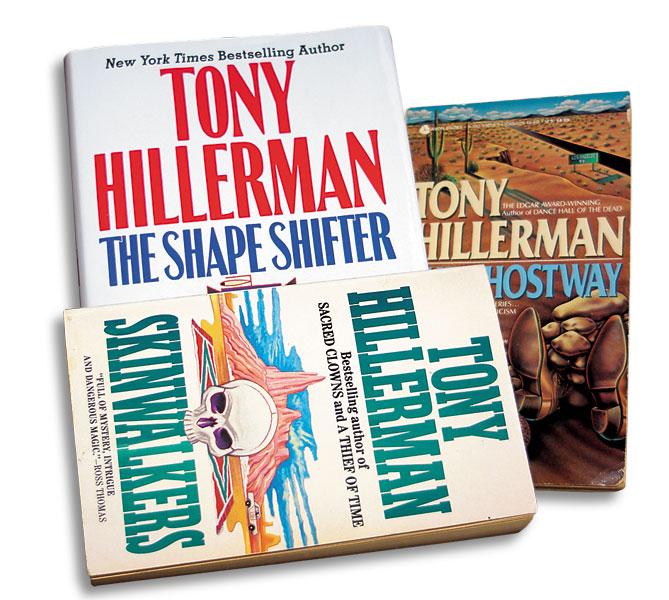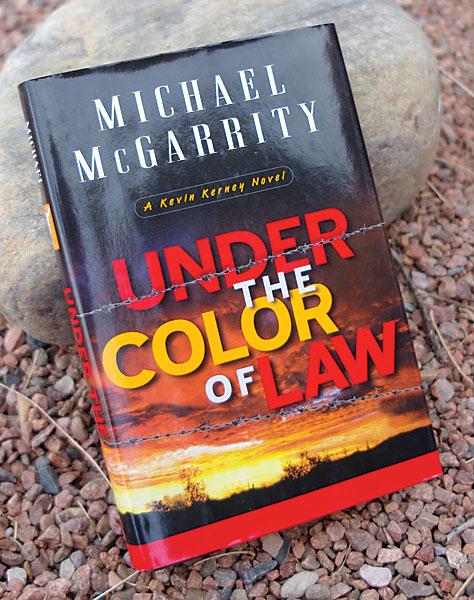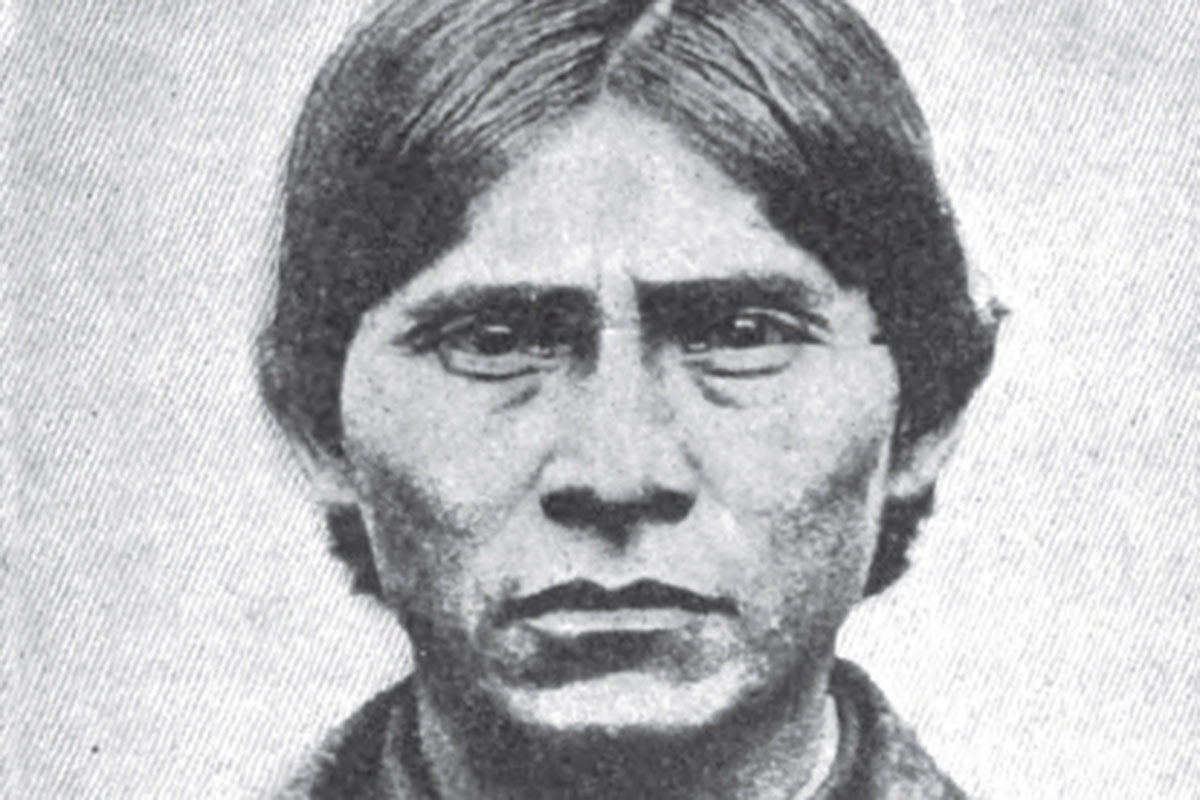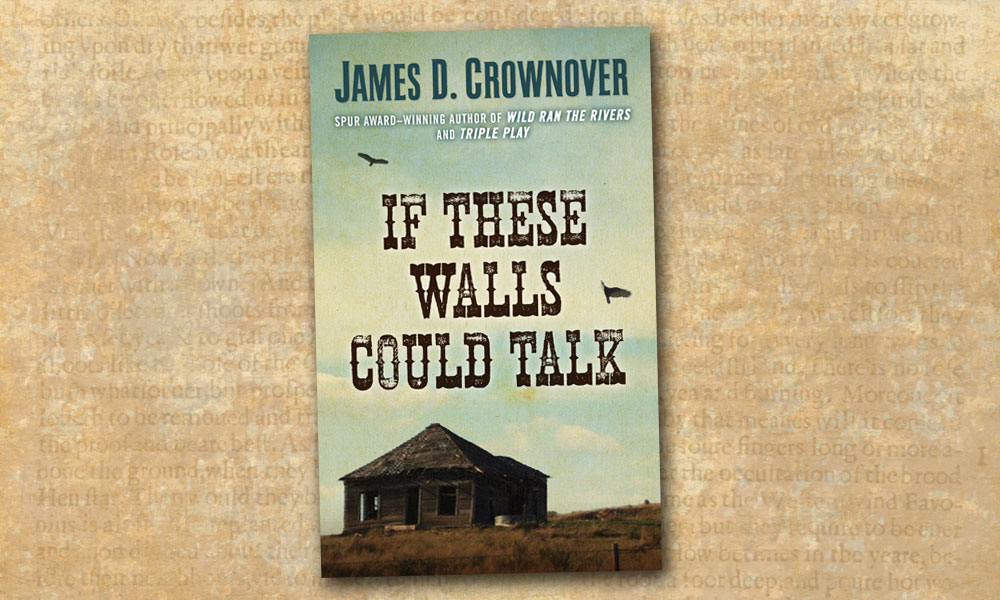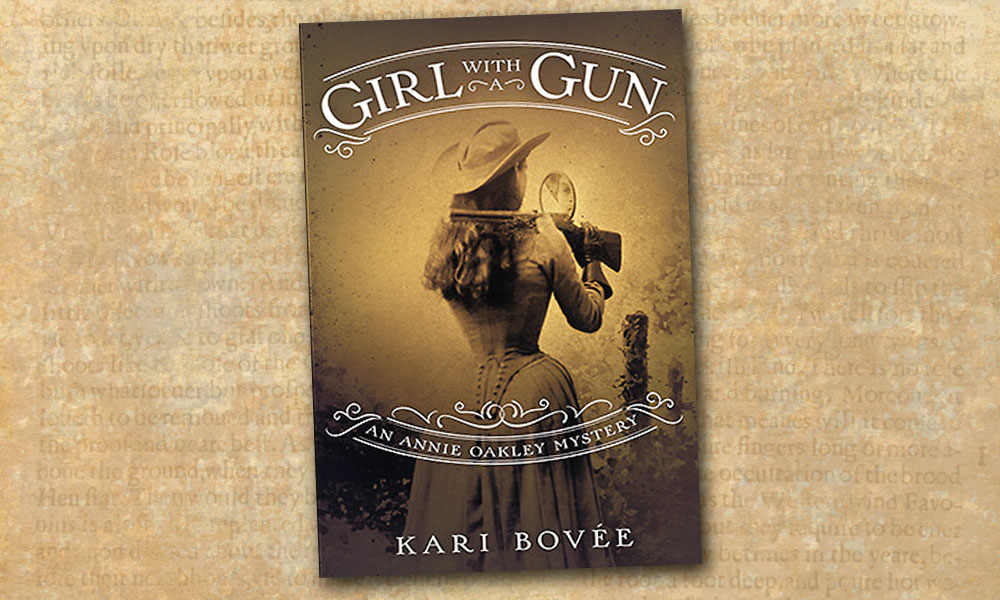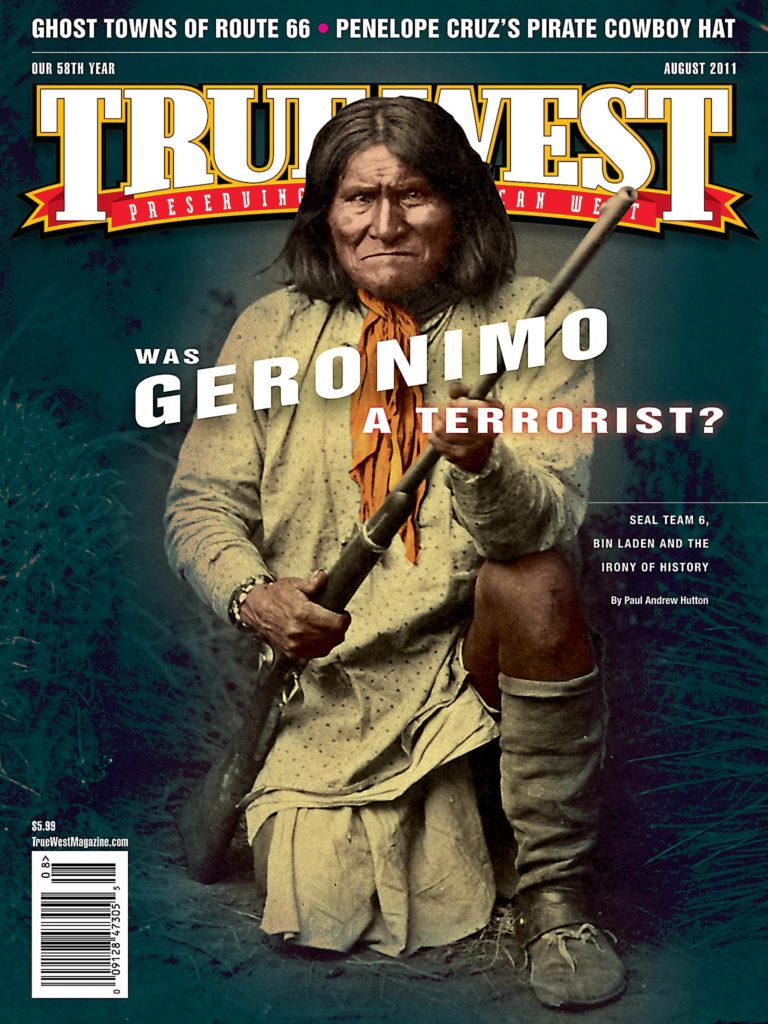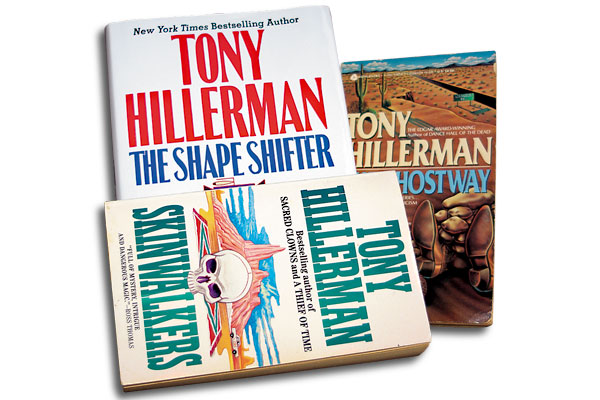 This librarian up in Idaho is giving C.J. Box the evil eye.
This librarian up in Idaho is giving C.J. Box the evil eye.
Murder is in this dame’s heart, and Box figures he’s about to take that big sleep.
A library conference might seem an unlikely murder scene, but Box’s crime-solving hero, Wyoming game warden Joe Pickett, has seen it all. Things get Western in today’s Western mystery novels. Other librarians laud Box’s books, but the Scowling Librarian states: “I will not read them!”
Not read C.J. Box? Now there’s a mystery.
Crime novels used to be big-city affairs. Raymond Chandler’s Philip Marlowe showed us Los Angeles’s seamy underbelly. Mickey Spillane’s Mike Hammer gunned down half the population of New York City. But crime has gone West.
“Mystery writers are drawn to the West because it is mythical, majestic, magical and murderous,” says Michael McGarrity, whose fictional cop, Kevin Kerney, has been solving crimes in New Mexico since Tularosa debuted in 1996.
Maybe we should thank the late Tony Hillerman. Honored by both Mystery Writers of America and Western Writers of America, Hillerman helped redefine both genres.
That’s right. Hillerman’s Navajo cops, Joe Leaphorn and Jim Chee, were Western heroes, not just gumshoes. Same with Box’s Pickett and McGarrity’s Kerney. Hillerman, Box and McGarrity write about men with hats, badges and guns bringing law and order to the West. It just happens to be the modern West.
Of course, this trend might predate Hillerman. In 1929’s Red Harvest, Dashiell Hammett stuck his Continental Op in Poisonville, Montana, a raw mining town. It was a natural setting for Hammett, who, legend has it, once worked in Butte as a Pinkerton union-buster.
Likewise, Susan Cummins Miller found it natural to set her mystery series, featuring professional geologist and amateur sleuth Frankie MacFarlane, in the West. “It was a lot less research, for one thing,” says Miller, who did her fieldwork with the U.S. Geological Survey across the West and now hangs her trowel in Tucson, Arizona.
Frankie’s a dame, by the way. That’s right. The West isn’t just a man’s world. Female sleuths abound in today’s literary scene. “She’s stronger and braver and smarter than I could ever be,” Miller says of her heroine, “but that’s okay. You can do that with an alter ego.”
Box informs us of another good reason to set mysteries in the West. “You can dispatch people in more interesting ways,” Box says. “I’ve got cows exploding. One lawyer was eaten by grizzlies.”
Margaret Coel, a fourth-generation Coloradan who writes about an Irish-Catholic priest and a female Arapaho lawyer solving crimes on Wyoming’s Wind River Reservation, agrees. While researching one of her books, she had to call in the FBI.
“I know this is really weird,” Coel recalls telling her G-man snitch. “I know this is bizarre, but this is fiction. This guy is beaten up. The guy who beat him up thinks he has killed him, and he goes off somewhere. Another guy shows up and thinks, ‘Oh my God, I’m gonna get blamed for this.’ So he takes the body out and dumps him out in the wilderness, and it’s 30 below zero. So the poor guy ends up freezing to death. I know this is really bizarre, but who would you charge?”
The fed responded: “Oh, yeah, we had a case like that.”
Yeah, but what about that librarian in Idaho? Remember her? Box asked her what she had against his game-warden mysteries. Her reply: “I’m not interested in gay Mormons.”
Mystery solved. Game warden-gay Mormon…everybody needs their ears checked now and then.
Photo Gallery
“Tony Hillerman was one of our greatest novelists and gave us an unusual glimpse into the unfamiliar world of Indian mysticism,” Elmer Kelton said of one of the best Western and best mystery writers in recent memory.
– All photos by Johnny D. Boggs –


